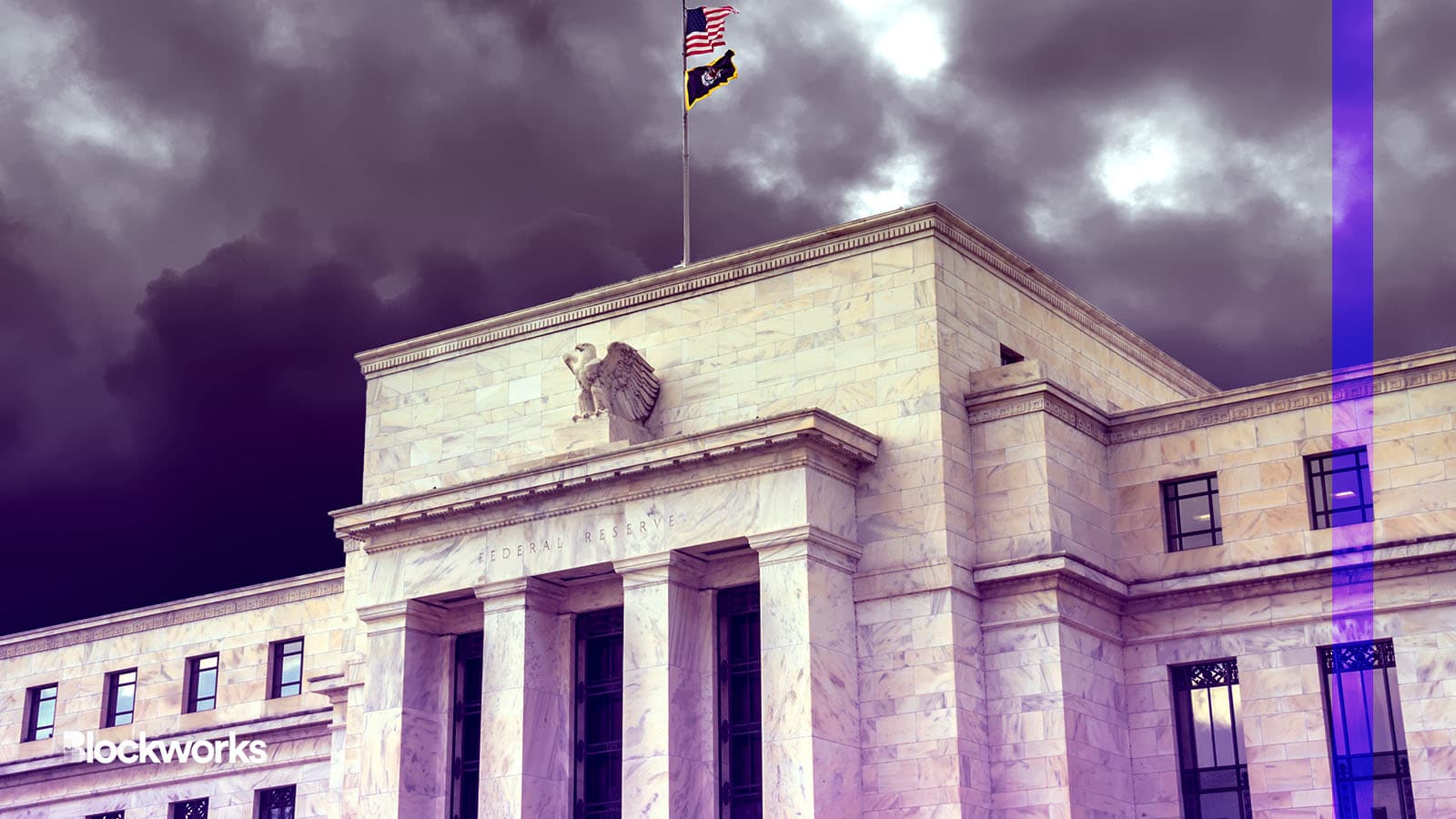Fed Says Real-time Payments Service To Launch in July
A mix of small and large financial institutions have declared intent to start using the FedNow service

Source: Shutterstock / MDart10, modified by Blockworks
The US central bank has announced its instant payments system is set to go live in less than four months, giving citizens a new prompt settlement and clearing service for their transactions.
The Fed announced Wednesday that the service will kick off the formal certification process for participants in the first week of April, which will be followed by a trial program in order to get ready for sending live transactions through the system. Operations will begin in July.
“We couldn’t be more excited about the forthcoming FedNow launch, which will enable every participating financial institution, the smallest to the largest and from all corners of the country, to offer a modern instant payment solution,” Ken Montgomery, a FedNow program exec and chief operating officer at the Fed Reserve Bank of Boston, said in a statement.
A varied mix of small and large financial institutions have shown intent to start using the FedNow service in July, according to the Fed. Montgomery said that access to the service is just the start point, with the major focus being on growing the network of participating institutions in order to broaden the availability of instant payments across the country.
Gabor Gurbacs, director of digital assets strategy at VanEck, said the timing of the service launch was suspicious, considering multiple US bank failures. “This may be the first leg into CBDC rails/reset,” he said.
The FedNow service is seen as an alternative to central bank digital currencies, which are virtual currencies backed and issued by a central bank. US Fed governor Michelle Bowman last year said the service addresses the issues that some have raised about the need for a CBDC.
The US Treasury is currently considering the consequences of issuing a CBDC, while lawmakers are still divided on the matter. But even as policy deliberations drag on, Treasury officials are designing the technology that would be needed for a CBDC in case it is determined that it should be used.
The service will launch with a solid set of clearing and settlement functionality, and other features will be added in future releases as the network expands.
It’s likely there is a role for cryptographically secured stablecoins even if the US eventually does issue a CBDC, which raises issues of privacy and centralization of power.
Tom Barkin, a FedNow Program executive sponsor, said the Fed is creating a “leading-edge payments system that is resilient, adaptive and accessible.”
Get the news in your inbox. Explore Blockworks newsletters:
- The Breakdown: Decoding crypto and the markets. Daily.
- 0xResearch: Alpha in your inbox. Think like an analyst.






